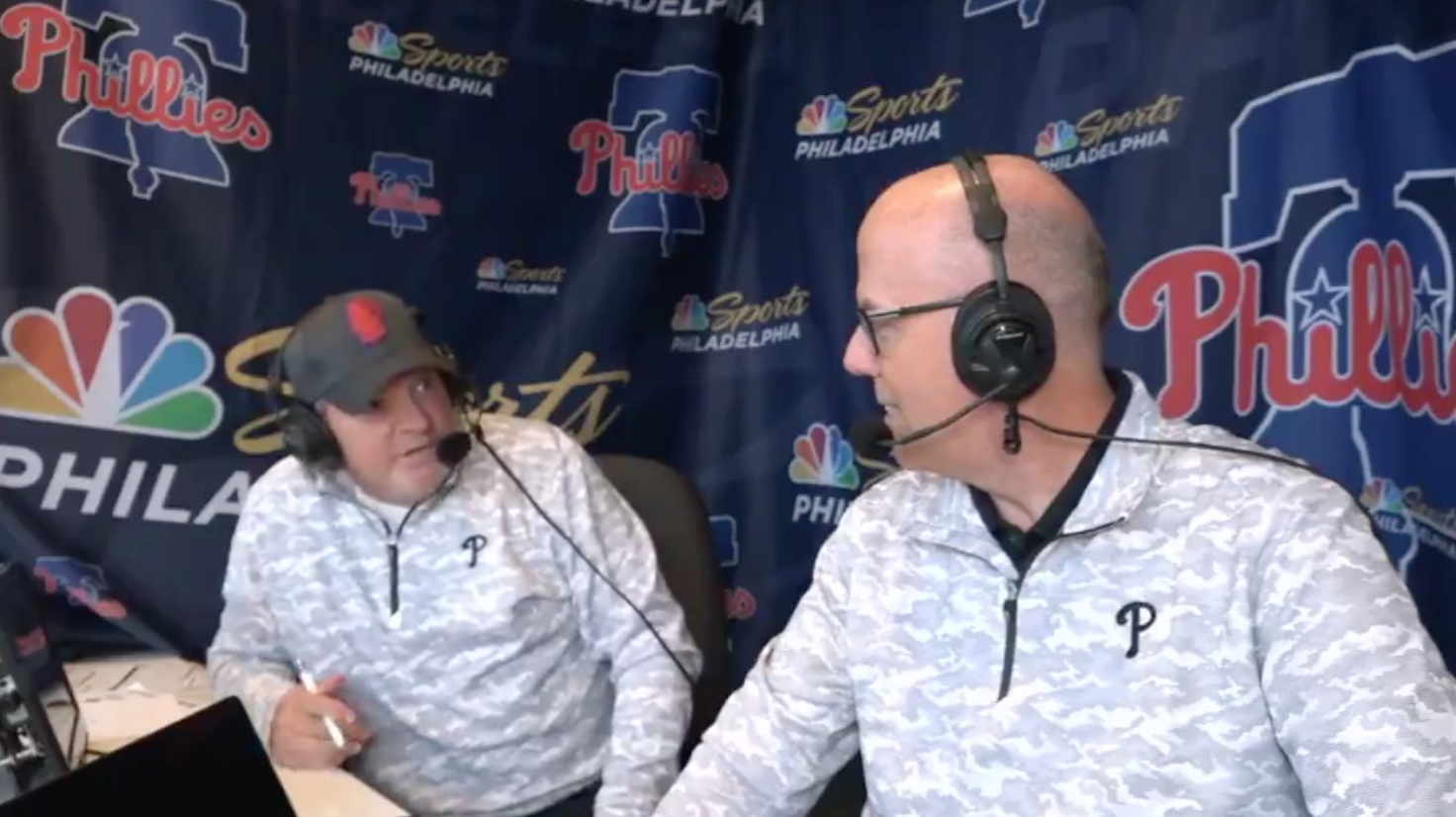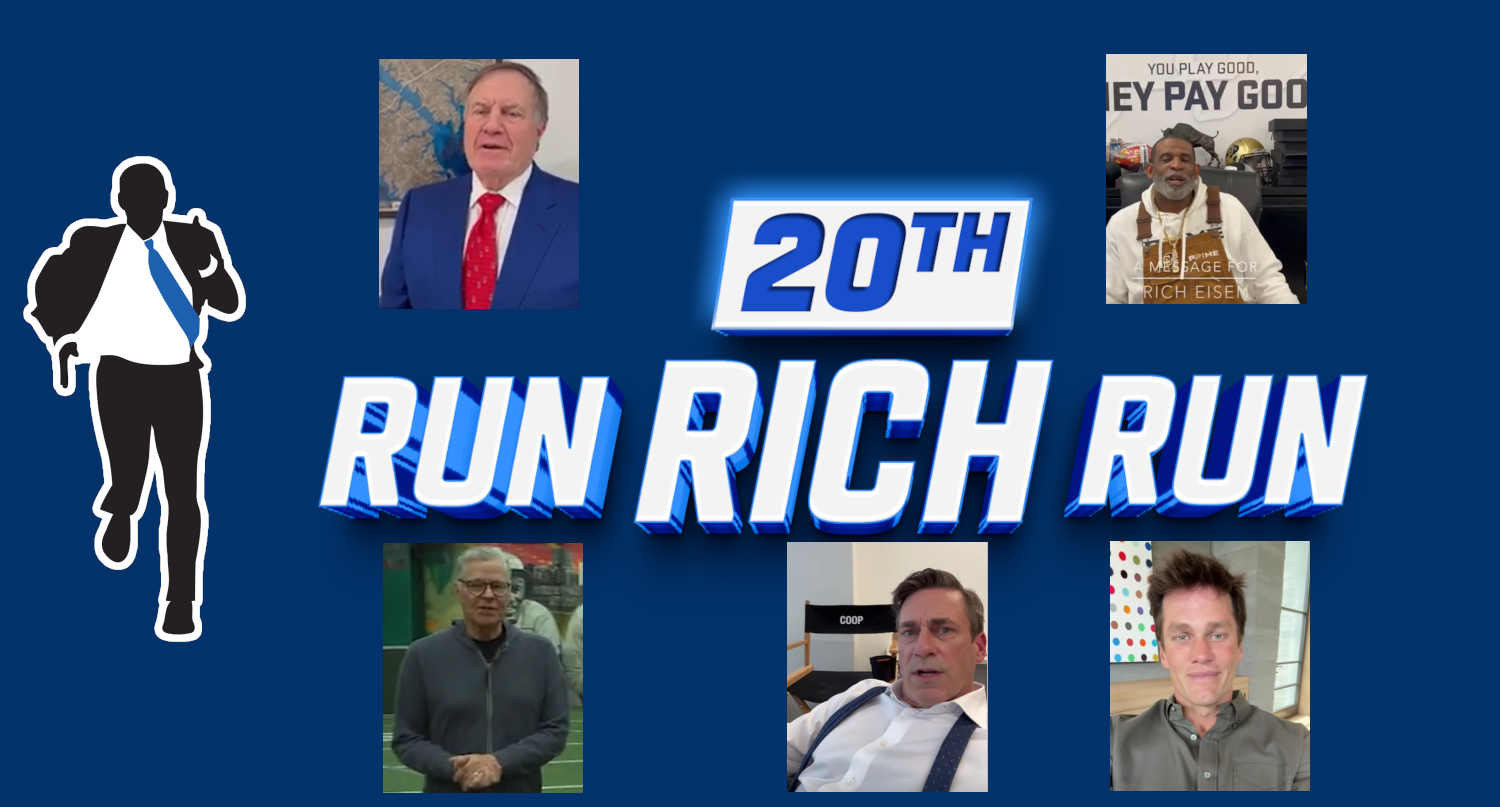The national attention surrounding “fake school” Bishop Sycamore largely started in 2021 when that team played a game televised on ESPN against IMG Academy. That game, on August 29, 2021, saw IMG put up a 58-0 win that could easily have been more lopsided still. And it led to ESPN announcers Anish Shroff and Tom Luginbill offering a whole lot of unusual in-game criticisms for Bishop Sycamore, from disputing the school’s claims on Division I prospects to “this could potentially be dangerous.”
This is what happens when ESPN gets duped into airing a high school football game between the most talented team in the country and an online charter school nobody has heard of, went 0-6 last year, and lied about its roster to get on TV. pic.twitter.com/QUwM8BQKiY
— Ben Koo (@bkoo) August 29, 2021
That broadcast spawned a whole lot of digging, including a series of pieces from us. (Our full coverage can be found with this tag.) It also led to a number of court cases. And it led to several competing documentary projects, including BS High.
BS High made its debut at the Tribeca Film Festival this year, and is set for an Aug. 23 premiere on HBO and Max. It’s directed by Travon Free and Martin Desmond Roe, and executive produced by Adam McKay and Michael Strahan. And it has one particularly unique feature with the involvement of coach Roy Johnson, who parted ways with Bishop Sycamore two days after that ESPN broadcast.
In December 2021, a New York Times feature on Bishop Sycamore and predecessor Christians of Faith Academy had Johnson saying he couldn’t say much, with the Times describing his explanation as being that he’d “sold the rights to the story to Michael Strahan.” He told the paper “Everything will come out in the documentary.”
“Rights” is tricky language with documentaries. Anyone can make a documentary about anything without full participation or access, and without league involvement and the perils that can come with that. But subjects can of course agree to participate or not in any given project.
The actual setup there is a little more complicated. Last year, as part of one of the many lawsuits involving Johnson and the school, creditor First Merchants Bank got a court ruling blocking payments from Strahan’s company SMAC Entertainment to Johnson. SMAC then told Rick Porter of The Hollywood Reporter “In November, we entered into an agreement to option and acquire the exclusive rights to Roy Johnson’s life story in connection with a potential scripted project. He was not paid for participating in the documentary.”
There are of course plenty of potential opinions on that. At specific face value, those are two separate projects, and paying people for exclusive scripted rights to their authorized story is not uncommon. But Johnson receiving payment (it’s unclear if he personally got anything from this agreement, or if the funds went to creditors) from the same company producing a documentary on him is certainly notable, especially when he then used that documentary and that payment as a reason not to talk to other members of the media. And for some, that may wind up being a mark against this project.
So that’s going to lead to a lot of focus on how the documentary presents Johnson. But a trailer HBO released Thursday certainly suggests that he was asked some tough questions, and that he didn’t always react well. Near the end, at 1:51, he says “Can we take a break? He gets up and walks away, and then says “That’s [bull excrement].” But that trailer also has him giving some notable answers:
In particular, Johnson says around 1:01 “I think I’m the most honest liar I know.” At 1:33, he says “Did I break a law? Is it illegal? Am I in jail?” (Well, not all lawbreaking leads to jail, and the web of civil litigation around Bishop Sycamore certainly suggests some creditors feel Johnson broke laws.) But one really notable line that indicates Johnson’s whole thinking and why he ran this program the way he did comes at 1:37: “We’re on ESPN. Win, lose, or draw, we win.”
That’s a wild thing to say after the fact, though, as the Bishop Sycamore case really appears to illustrate the failings of an “All publicity is good publicity” approach. As discussed in our year-after piece, the whole Bishop Sycamore saga didn’t really seem to work out great for anyone. And the financial filings to date certainly show it didn’t work out for many of the program’s creditors, and it also doesn’t seem to have worked out too well for Johnson (although that may depend on just how much he got paid for those exclusive life story rights, and how much of that, if any, he’s able to keep from creditors).
But that comment fits with some of the other wild things that came out in our reporting on the world of ESPN high school game scheduling. In that world, there are a lot of people and programs whose behavior has indicated they think that national exposure is going to lead to offers regardless of talent. (And, hey, the whole “Baby Gronk” saga is suggesting that many people still believe in that approach.) And that probably means Bishop Sycamore is not the last or only scandal we’ll see in that world.
Back on the documentary front, though, the really interesting thing to watch with BS High is going to be how it handles Johnson (who, again, isn’t really talking to other media), and how it contrasts his claims with research and with testimony from others. The trailer certainly suggests there will be a fair bit of voices challenging Johnson, and that’s positive. And a June interview with co-director Free from George Shillcock of WOSU (a Columbus, OH public radio station) illustrates some of the documentary’s approach:
Free also said the film features over 30 hours of interviews with disgraced former head coach Roy Johnson, but he wants viewers to feel sympathy toward the kids and parents who were impacted by the fake school.
“We weren’t just dealing with a ragtag, like, scruffy football team that was like trying to bad news bears their way into, you know, beating IMG. It was a lot deeper,” he said.
…”(Johnson) has this charm about him. That is a powerful tool that he used to make all this happen to begin with,” Free said.
But Free said that charm quickly faded away for he and the production team as he and the team interviewed the players, parents and others who were impacted by Johnson’s actions.
…Free said the film explores how the coach took advantage of the players who had big dreams and aspirations, and used them for his own benefit.
“Every pre-interview we did with kids or parents, it was just horror story after horror story of things we couldn’t even put in the movie,” Free said.
Free said Johnson was open during the time he was interviewed and candid, even when he probably shouldn’t have been. Free also said he was surprised Johnson didn’t walk out of the interview at times.
“If you tell (Johnson) there’s a camera and a microphone, he will show up because he has a story to tell and he wants to tell it. I’m like, ‘there’s no way this guy wants to or should be in front of a camera,’ and at every stage he is,” Free said.
Indeed, even the comments from Johnson in this trailer raise some real questions about why he’s saying these things publicly. So it will certainly be interesting to fully evaluate BS High and how it covers him. (We’ll have a full review here ahead of the documentary’s premiere.)
BS High will premiere on HBO and Max on Aug. 23.







